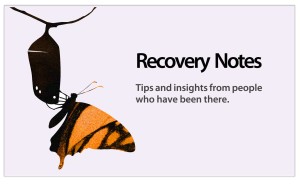Research Article
Psychosis, Need Adapted treatment, and psychiatrists’ agency
Psychosis: Psychological, Social and Integrative Approaches, iFirst Article, 2013
Pekka Borchers, Jaakko Seikkula & Klaus Lehtinen
DOI: 10.1080/17522439.2012.755218
Research Article
Metacognitive Narrative Psychotherapy for people diagnosed with schizophrenia: An outline of a principle-based treatment manual
Rebecca Bargenquast & Robert Schweitzer
Psychosis: Psychological, Social and Integrative Approaches, iFirst Article, 2013
DOI: 10.1080/17522439.2012.753935
Research article
Influence of psychosocial risk factors on the trajectory of mental health problems from childhood to adolescence: a longitudinal study
Fatori D, Bordin IA, Curto BM, de Paula CS
BMC Psychiatry 2013, 13:31 (17 January 2013)
Research article
Working alliance and its relationship to outcomes in a randomized controlled trial (RCT) of antipsychotic medication
Wykes T, Rose D, Williams P, David AS
BMC Psychiatry 2013, 13:28 (15 January 2013)
Research article
Quality of life is predictive of relapse in schizophrenia
Boyer L, Millier A, Perthame E, Aballea S, Auquier P, Toumi M
BMC Psychiatry 2013, 13:15 (9 January 2013)
Research article
Yoga for schizophrenia: a systematic review and meta-analysis
Cramer H, Lauche R, Klose P, Langhorst J, Dobos G
BMC Psychiatry 2013, 13:32 (18 January 2013)
Research article
The influence of Antonovsky’s sense of coherence (SOC) and psychoeducational family intervention (PEFI) on schizophrenic outpatients’ perceived quality of life: a longitudinal field study
Gassmann W, Christ O, Lampert J, Berger H
BMC Psychiatry 2013, 13:10 (7 January 2013)
Research article
The effectiveness of individual interpersonal psychotherapy as a treatment for major depressive disorder in adult outpatients: a systematic review
van Hees ML, Rotter T, Ellermann T, Evers SM
BMC Psychiatry 2013, 13:22 (11 January 2013)
Research article
The effects of a nationwide program to reduce seclusion in the Netherlands
Vruwink FJ, Mulder CL, Noorthoorn EO, Uitenbroek D, Nijman HL
BMC Psychiatry 2012, 12:231 (18 December 2012)
Research Article
Exploring the links between childhood imaginary companions and auditory hallucinations
Psychosis: Psychological, Social and Integrative Approaches, iFirst Article, 2012
Frank Burbach, Gemma Roberts, Chris Clinch & Nicola Wise
DOI: 10.1080/17522439.2012.753934
Research article
Effectiveness of a psycho-educational group program for major depression in primary care: a randomized controlled trial
Casañas R, Catalán R, Val JL, Real J, Valero S, Casas M
BMC Psychiatry 2012, 12:230 (18 December 2012)
Research article
Trauma exposure, PTSD and psychotic-like symptoms in post-conflict Timor Leste: an epidemiological survey
Soosay I, Silove D, Bateman-Steel C, Steel Z, Bebbington P, Jones PB, Chey T, Ivancic L, Marnane C
BMC Psychiatry 2012, 12:229 (18 December 2012)
Research article
Treatment and outcomes of an Australian cohort of outpatients with bipolar I or schizoaffective disorder over twenty-four months: implications for clinical practice
Kulkarni J, Filia S, Berk L, Filia K, Dodd S, de Castella A, Brnabic AJ, Lowry AJ, Kelin K, Montgomery W, Fitzgerald PB, Berk M
BMC Psychiatry 2012, 12:228 (17 December 2012)
Research article
Thoughts of death or suicidal ideation are common in young people aged 12 to 30 years presenting for mental health care
Scott EM, Hermens DF, Naismith SL, White D, Whitwell B, Guastella AJ, Glozier N, Hickie IB
BMC Psychiatry 2012, 12:234 (26 December 2012)
Research article
Relationship between depressive symptom severity and emergency department use among low-income, depressed homebound older adults aged 50 years and older
Choi NG, Marti CN, Bruce ML, Kunik ME
BMC Psychiatry 2012, 12:233 (26 December 2012)
Research article
Internalized stigma among patients with schizophrenia in Ethiopia: a cross-sectional facility-based study
Assefa D, Shibre T, Asher L, Fekadu A
BMC Psychiatry 2012, 12:239 (29 December 2012)
Research article
An impaired health related muscular fitness contributes to a reduced walking capacity in patients with schizophrenia: a cross-sectional study
Vancampfort D, Probst M, Herdt A, Corredeira RM, Carraro A, Wachter D, Hert M
BMC Psychiatry 2013, 13:5 (3 January 2013)
Research in Progress
Study protocol
Tachikawa project for prevention of posttraumatic stress disorder with polyunsaturated fatty acid (TPOP): study protocol for a randomized controlled trial
Matsuoka Y, Nishi D, Yonemoto N, Hamazaki K, Matsumura K, Noguchi H, Hashimoto K, Hamazaki T
BMC Psychiatry 2013, 13:8 (5 January 2013)
Study protocol
Low intensity vs. self-guided Internet-delivered psychotherapy for major depression: a multicenter, controlled, randomized study
López-del-Hoyo Y, Olivan B, Luciano-Devis JV, Mayoral F, Roca M, Gili M, Andres E, Serrano-Blanco A, Collazo F, Araya R, Baños R, Botella C, Magallón R, Campayo JG
BMC Psychiatry 2013, 13:21 (11 January 2013)
Study protocol
Effectiveness and cost-effectiveness of body psychotherapy in the treatment of negative symptoms of schizophrenia — a multi-centre randomised controlled trial
Priebe S, Savill M, Reininghaus U, Wykes T, Bentall R, Lauber C, McCrone P, Röhricht F, Eldridge S
BMC Psychiatry 2013, 13:26 (14 January 2013)








